An understanding is rapidly gaining ground that we are currently in the midst of not one but two major epidemics in Pakistan: COVID-19 and Femicide. The Coronavirus might be invisible to the naked eye, but it can easily be tested as positive or negative in a laboratory. But with Femicide, it is not so simple.
Influential male killers of women and girls — and now, increasingly, of little boys and trans/non-binary individuals (TGI/NB) — too tend to become ‘invisible’ to the long arm of the law. And, where dishonour killings (aka kaaro-kaari, the so-called ‘honour’ killings) are concerned, even women’s dead bodies become invisible within minutes — they are buried immediately, silently, furtively — sans ablutions, shrouds, funerals or death rituals.
During the recent Eid holiday week that saw the arrogant, wealthy, elitist, powerful Zahir Jaffer, brutally and mercilessly torture, stab, shoot, decapitate Noor Mukadam, and play football with her head in his posh Islamabad locality home, we also heard horrific tales of poverty-stricken Naseem Bibi, Quratulain, Saima and other victims, as well as a few lucky survivors, whom we will not name in order to protect their privacy and dignity. We wish the law enforcement agencies (LEAs) and segments of the media were just as ethical.
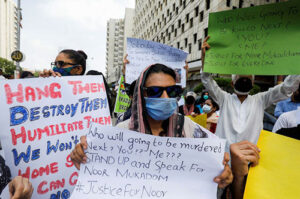
That nightmarish week ended with the terrible, unbelievable news that the Punjab PTI government had just released multiple stab-wound survivor Khadija Siddiqui’s intending killer, Shah Hussain, from prison a year-and-a half prior to the completion of his incredibly lenient sentence of five years. This was already a reduction from the original seven-year imprisonment pronounced at his conviction. His father happens to be an influential lawyer.
Newly-married Adiba of Hunza was raped and killed by her father-in-law and brother-in-law. Both have confessed to their crime, but both have been released on bail. It is a long and sad list of injustices pertaining to violent sexual crimes against women, reported day after day, week after week — unendingly and repeatedly showing up on our television screens, newspapers or social media. They are increasing in both number and frequency — as well as in sheer barbarity — to the extent that the general public is, by and large, getting benumbed and desensitised. And, perhaps, even becoming somewhat uncaring now.
In fact, the reported crimes are just the barely visible tip of a monstrous iceberg. As reported annually in the State of Human Rights in Pakistan (by the independent Human Rights Commission of Pakistan, HRCP) and by the NGO Sahil, the LEAs only maintain data on those few crimes which are actually reported, along with the First Information Report, (FIRs) formally lodged at police stations.
These incidents are then reported by the mainstream print and electronic media. They are widely acknowledged to be a tiny fraction of the actual incidence of violent crimes against women — due to a whole range of reasons, mainly pertaining to the traditional notion of “shame” and “dishonour” relating to the victim or survivor, and her family, rather than the perpetrator of the crime.
Despite tall promises by both the military and the civilian governments over the past two decades, no national or provincial surveys on violence against women and girls (VAWG), and against TGI persons, have been carried out. If the quantum and magnitude of the problem is unknown, how can one expect it to be addressed?
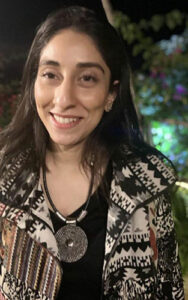

Noor Mukadam and Zahir Jaffer: The barbaric murder that benumbed
society
The terms, semantics and euphemisms used for rape, and other forms of gender-based violence (GBV) and sexual crimes in Urdu and our other national languages, obstinately continue to perpetuate the myths of “shame” and “dishonour,” despite four decades of unrelenting gender-sensitisation and GBV training courses, focusing, inter alia, on government functionaries, law enforcement agencies (LEAs) and the mainstream media. They serve only to paper over the fact that these are actually crimes being committed against a citizen of the state. According to Article 25 of the Constitution, women are equal citizens of the state, and have legally held equal status since 1973. But we are still struggling…
Speaking of semantics, it does not help matters at all when politicians and orthodox segments of the mainstream print and electronic media publicly play fast and loose with emotive terms like “liberal fascists,” “modernised equals westernised” (heaven forbid, tauba tauba), or, when all else fails, use the “anti-Islam” card, dragging in blasphemy too. For survivors or potential victims of gender-based violence and sexual crimes, this is too serious a matter for liberties to be permitted to be taken. It is quite literally a matter of life and death.
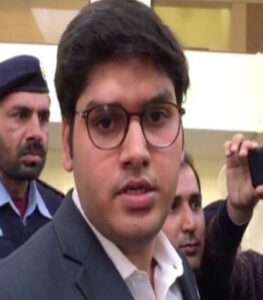
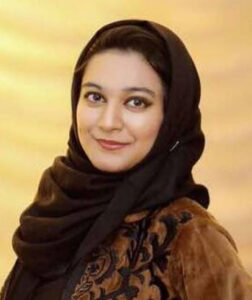
Shah Hussain and Khadija Siddiqui: It pays to have fathers in the legal
fraternity.
Pakistani women legitimately ask: Where is justice? Is it reserved only for men? And only for the rich and powerful? Why is it that the overwhelming vast majority of rich male criminals can buy their way out of both conviction and punishment for unspeakably violent GBV and sexual crimes against women and children?
Further, why are there such glaring loopholes in implementing the surfeit of “pro-women” laws promulgated between 2006 and 2016? Why has Parliament failed to enact the Domestic Violence Bill over the past two-and-a half decades? What does the Council of Islamic Ideology (CII) have to do with crimes against women and girls? Why does the law and the judiciary find its hands tied when faced with the implacable wall of out-of-court settlements, “compromises,” “forgiveness agreements” (sulahnaama, raazinaama, muaafinaama)? Logically speaking, does a signed “muaafinaama” not acknowledge the perpetrator’s guilt if he is seeking “forgiveness” – and that too, in writing?
Then there are the legal but gender-biased alternate dispute resolution (ADR) mechanisms such as illegal jirgas and panchayats — all-male entities: feudal, tribal, patriarchal, anti-women and anti-minorities. These illegal councils are operated by the wealthy feudal elite, many of whom are simultaneously in parliament and in government too.
Following up on the Sindh High Court’s landmark judgement in 2004, the Supreme Court subsequently declared jirgas and panchayats illegal several times, from 2006 to 2019. However, it has failed to enforce implementation of its orders by the federal and provincial governments. Both national and provincial legislatures continue to wilfully ignore the crying need for enactment of legislation to ban and criminalise all illegal, unjust adjudication entities and mechanisms. Hence, jirgas and panchayats continue to operate with impunity — and openly, with the LEAs’ obsequious collusion.
Significantly, there is the not-so-trivial matter of the Head of Government’s mindset. His on-the-record, publicly, repeatedly expressed opinions about women, obscenity, immorality, men, robots and rape, leave nothing to the imagination of even a 13-year-old teenager. Notwithstanding his truckload of spin-doctors’ subsequent frantic efforts to “explain,” “clarify” or “interpret” his “actual” meaning, it does not require a doctorate in rocket science to “get” it. In short, his views on women are patriarchal, sexist, chauvinist — and yes, even misogynist. So are those of his favourite spiritual guides, mentors, advisors.
It is worth recalling our fourth military dictator, President Gen. Musharraf’s statement to the Washington Post in 2004 that, along with the gang-rape survivor Mukhtaran Mai, Pakistani women got themselves raped in order to obtain (foreign) visas and to get rich quick. So, 2021 is simply déjà vu all over again. With despair, we wonder: has nothing changed in the intervening 17 years?
With such barbaric, warped mindsets prevailing in the top echelons of both civilian and military regimes, it is no surprise to hear misogynist statements from large numbers of men in power who control our federal and provincial governments, bureaucracies, legislatures, political parties, religio-political parties/groups/coalitions and, last but not least, influential sections of the conservative media.
Nevertheless, obviously we are aware that patriarchy, sexism and misogyny are not natural phenomena — they are learned attitudes and behaviour. Can such learned attitudes and behaviour be unlearned? Kiya asal tabdeeli aa sakti hai?
Yes. But it requires courage, political will and unwavering commitment to the ideology of gender justice and gender equality.
For instance, the incoming PTI government’s interim new Education Policy framework (2018) promised us the sun, moon and stars — but three years on, the much-critiqued Single National Curriculum (SNC, 2021) has entirely failed to deliver. The new curriculum promotes only General Zia-ul-Haq’s agenda of narrow sectarian theocratisation and exclusion, but not the much-needed proud celebration of 10,000 years of our civilisation and cultural heritage, gender justice and equality, acceptance of religious diversity, inclusion, pluralism, inter-faith harmony, and promotion of peace versus glorification of an emotive war.
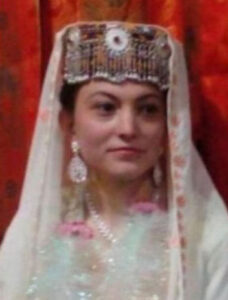
violence.
Currently, another mystifying issue for analysts is the minimal serious and sober analysis (outside of closed academic circles) of the factors responsible for the visible upsurge in sexism, GBV crimes, and openly expressed misogyny. The furious “either you are with us or against us” type of abusive argumentation on social media does not count as either debate or discussion. In fact, it provides oxygen and fuel to the fire. It is beneath contempt.
Pakistani feminists, and all those men, women and TGI/NB-persons working to promote gendered human rights, are now wondering if all the above-cited horrific dots could perhaps be connected so as to arrive at the inescapable conclusion that patriarchy might well and truly be on the decline in Pakistan. And perhaps also, that the exponential increase in sexual crimes and gender-based violence — both in actual numbers as well as in media reporting of GBV — is just the expected backlash to a demonstration that the wounded old lion is thrashing about in its death throes.
Or is it simply wishful thinking on our part that virulent hatred against women might end in our lifetime? The kind that spawns football-playing with a woman’s decapitated head? Or a rejected suitor stabbing the rejector 23 times?
Wishful thinking or not, there is a need for us to urgently remind both the government and the opposition to not play dirty partisan politics over a woman’s right to life, security, protection, dignity and freedom from violence — particularly when it comes to legislation and policy-making. For example, the PTI government’s handing over the Domestic Violence Bill to the Council of Islamic Ideology yet again. Or the PML-N being so confused about the current debate raging around the 2020 anti-Rape Ordinance-turned-Bill that they initially sent in a written objection to it in Parliament and subsequently withdrew that objection, also in writing. We wonder if it is simply confusion and incomprehension, or a lack of political commitment to enacting legislation to end VAWG, or, perhaps worst of all, mala fide intent?
We are quite clear in our understanding. As long as a significant number of our successive heads of state, governments, political parties, legislators, policy-makers, law-makers, law-interpreters, bureaucratic administrations, religious-influencers, media-influencers, educators, intellectuals, analysts, popular cultural, showbiz and sports personalities continue to spout sexist, misogynist ideology, Pakistan will continue to see rising incidents of outrageous crimes against women and girls.
Only when Pakistani men muster enough empathy, enough courage, and enough solidarity with their female compatriots, to counter this toxic ideology, will we see the emergence of light at the end of the long, dark tunnel. But for that, a critical mass is required.
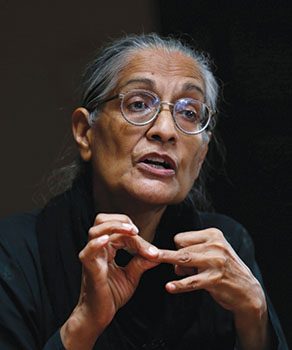
The writer is a development practitioner, researcher, human rights defender, peace activist and humanitarian volunteer.



